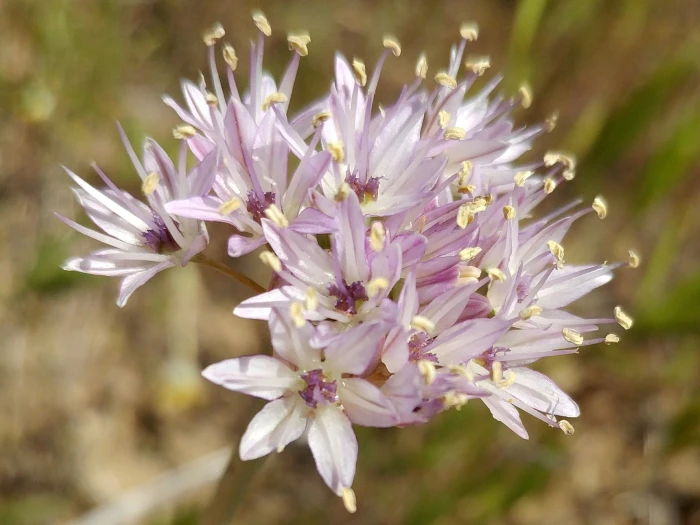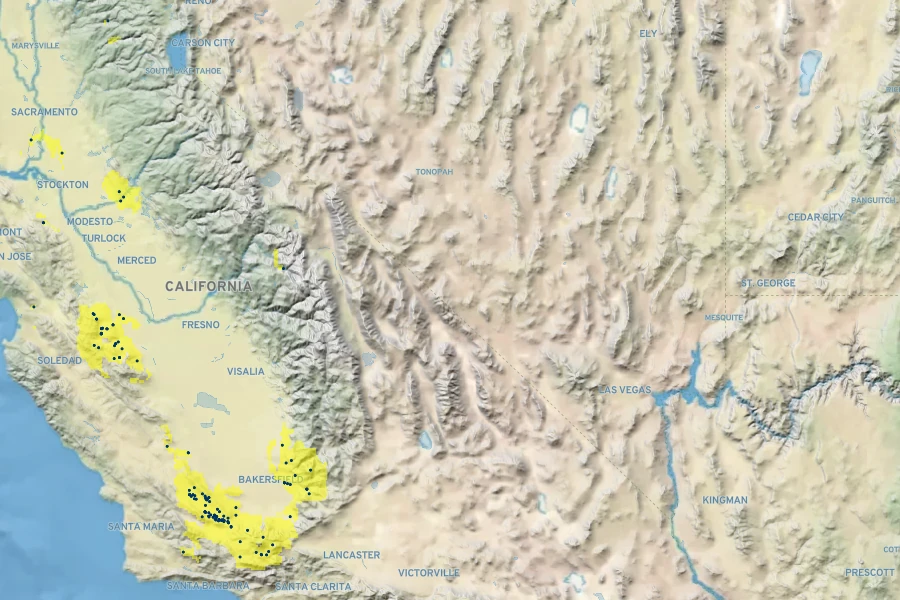Howell’s Onion
/
(Allium howellii)
Howell’s Onion (Allium howellii)
/

Casey H. Richart
CC BY 4.0
Image By:
Casey H. Richart
Recorded By:
Copyright:
CC BY 4.0
Copyright Notice:
Photo by: Casey H. Richart | License Type: CC BY 4.0 | License URL: http://creativecommons.org/licenses/by/4.0/ | Rights Holder: Casey H. Richart | Publisher: iNaturalist | Date Created: 2020-05-03T13:32:31-07:00 |



















Summary
Allium howellii, commonly known as Howell’s onion, is a perennial herb native to the chaparral, foothill woodlands, and grasslands of California, particularly in areas with granite and serpentine soils across several mountain ranges, hills, and valleys from San Joaquin County to San Bernardino County. This species typically produces a stem that may exceed 20 inches in height from a reddish-brown bulb. The inflorescence holds up to 100 dark-veined lavender to white flowers, each under half an inch long, blooming in the late spring to early summer. The flowers are not particularly showy but are attractive to a variety of pollinators.
Howell’s onion is valued for its drought tolerance and adaptability to poor soil conditions, making it a suitable choice for native plant gardens, rock gardens, and restoration projects. It is also used in culinary applications, although less commonly than other Allium species. In cultivation, it requires minimal water once established, thrives in full sun to part shade, and prefers well-drained soils. There are no widely available garden cultivars of this species. Potential problems include bulb rot in overly moist conditions and susceptibility to onion thrips.CC BY-SA 4.0
Howell’s onion is valued for its drought tolerance and adaptability to poor soil conditions, making it a suitable choice for native plant gardens, rock gardens, and restoration projects. It is also used in culinary applications, although less commonly than other Allium species. In cultivation, it requires minimal water once established, thrives in full sun to part shade, and prefers well-drained soils. There are no widely available garden cultivars of this species. Potential problems include bulb rot in overly moist conditions and susceptibility to onion thrips.CC BY-SA 4.0
Plant Description
- Plant Type: Herb, Bulb
- Height: 1-2 feet
- Width: 0.5-1 feet
- Growth Rate: Moderate
- Flower Color: Pink, Purple, White
- Flowering Season: Spring, Summer
- Leaf Retention: Deciduous
Growth Requirements
- Sun: Full Sun
- Drainage: Fast
Common Uses
Bee Garden, Butterfly Garden, Low Maintenance, Rock Garden
Natural Habitat
Native to chaparral, foothill woodlands, and grasslands of California
Other Names
Common Names: Howell’s Garlic
Scientific Names: Allium howellii
GBIF Accepted Name: Allium howellii
